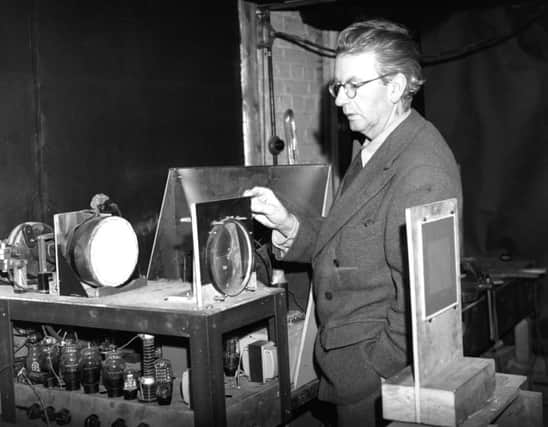Always put your patents in place


From John Logie Baird to Alexander Fleming, Scotland has a long and proud history of innovation.
The inventions of these great men helped to shape the world as we know it, and so it is fitting that, each year, the European Inventor Awards celebrate the modern-day innovations shaping our present and future.
Advertisement
Hide AdAdvertisement
Hide AdLaunched by the European Patent Office (EPO) in 2006, the so-called “Oscars of Technology” pay tribute to the creativity of inventors who contribute to the economic and social wellbeing of Europe and beyond through technical innovation. The EPO administers the European patent system by acting as the “gate-keeper” that decides whether or not to grant a European patent for an invention in return for publication of details of the invention.
A European patent may provide the proprietor of the patent with a monopoly for exploiting a product or a service for up to 20 years in up to 38 European countries. The system serves the public interest as publication of the details of an invention may stimulate third parties to create further innovations
At last month’s ceremony in Berlin there were 15 finalists (individuals and teams) – three in each of the five categories: Industry, Small and Medium Sized Enterprises (SMEs), Research, Non-European Countries and Lifetime Achievement. Each finalist is a named inventor on at least one, and in some cases, numerous granted European patents.
The EPO website has details of all the finalists, but the EPO also recently launched a free smart TV app called “Innovation TV” which features the remarkable story of each of the finalists and their work.
As you watch Innovation TV, it becomes immediately clear that each finalist has made an outstanding contribution to their technical field and/or has enjoyed considerable commercial success. The sheer range of technologies was also hugely impressive.
The winning invention in the Industry category was a new drug for combating tuberculosis. Also amongst the finalists in this category was a type of self-cleaning concrete that could potentially be used to keep the exteriors of buildings cleaner for longer and to help neutralise pollutants and improve air quality in the cities that surround them.
The Non-European Countries category was won by Charles W Hull, the “Father of 3D Printing”.
The SME category was won by a membrane coated with aquaporins which purifies water without consuming large amounts of energy. The SME category also included an inflatable helmet for cyclists, which is worn as a collar and deploys automatically in the event of an accident.
Advertisement
Hide AdAdvertisement
Hide AdIn the Research category, the winner was Chris Toumazou – a former lecturer of mine at Imperial College, London. He has developed a microchip for quick DNA testing for determining a person’s pre-dispositions to certain hereditary diseases.
But perhaps one of the most interesting finalists from a patent perspective was the winner of the Lifetime Achievement category, Artur Fischer.
Fischer is one of the world’s most prolific inventors with more than 1,100 applications for patents and utility models in Germany alone and countless more around the world. Although he invented flash photography and the eponymously-named toy construction system Fischertechnik, he is best-known for his most popular invention: the expanding wall plug. Fischer, 94, founded his company, Fischerwerke GmbH, in 1948. Now a world-market leader in a variety of fixing system market segments, Fischerwerke employs 4,000 people worldwide and sells its products in more than 100 countries. In 2012, Fischerwerke reported a turnover of €618 million (£491m).
The success of Fischerwerke shows the importance of securing intellectual property. Inventors can create the most fantastic technology, but successful commercialisation is reliant on having patents in place. Without that protection, it is all too easy for a competitor to exploit the technology without consent and it becomes extremely difficult to attract investment.
For any Scottish inventors who may look to follow in Artur Fischer’s footsteps, the message is clear – make sure that the intellectual property underpinning your invention is secure.
Bearing that in mind, the European Inventor Award 2015 is now open for nominations. Each nominee must be a named inventor on at least one granted European patent. So, if you are interested or impressed by the work of a Scottish inventor or an inventor or team of inventors living or working in Scotland, then now is the time to nominate them for next year’s awards ceremony.
With three finalists between 2006 and 2013 being based in Scotland, it is clear that our culture of innovation continues to this day.
• Michael Street is a chartered and European patent attorney at Marks & Clerk www.marks-clerk.com
SEE ALSO